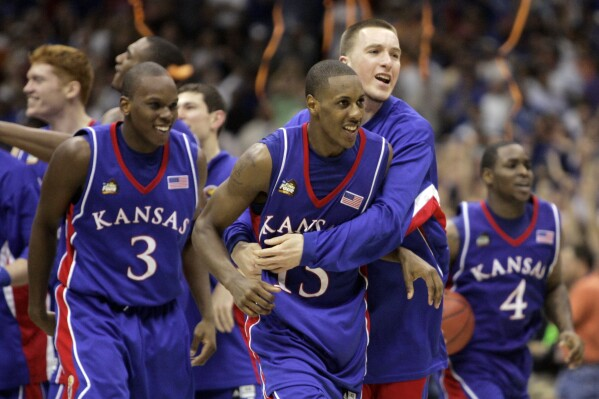In a legal decision that’s stirring up the college sports world again, a federal judge has dismissed a major class-action lawsuit against the NCAA. The lawsuit, led by 16 former student-athletes, accused the NCAA of profiting from their names and images without compensation.
But because the athletes played before 2016, the case was thrown out as too late under antitrust law. While it’s a win for the NCAA, the ruling reopens a much larger debate: what do former college stars actually deserve—and what comes next? Let’s dig into the broader implications, beyond just the courtroom headlines.
SoWhat?

This isn’t just about one case being tossed aside. It’s about a system at a turning point. Even as current players push for fair pay, older athletes are being told the door’s closed. The bigger question now? Who really wins in this fight over athlete compensation—and what’s coming next for college sports?
1. The NCAA Scored a Legal Victory—But It’s Not Over
The U.S. District Judge Paul Engelmayer ruled that the lawsuit was simply filed too late. Federal antitrust claims must be filed within four years, and these former athletes had waited more than a decade. That’s the legal side. But the NCAA’s statement also hints they’re preparing for more similar lawsuits, calling this one a “copycat” case.
Even though the NCAA is celebrating this round, they’re still navigating another pending $2.8 billion settlement—this one involving thousands of current and recent athletes. That case, in a California court, was just delayed due to fairness concerns. It’s clear the issue of athlete pay isn’t going away.
2. Why 2016 Is a Legal Cutoff—And Why It Matters
The dismissed athletes, including former Kansas Jayhawks basketball champions, aren’t part of the current settlement because they played before 2016. That date matters. It’s when the conversation around NIL (Name, Image, and Likeness) rights began gaining traction nationally.
For those who missed that wave, the law is saying it’s too late to claim a piece of the pie. This draws a harsh line between today’s athletes who can now earn money and yesterday’s stars who played under older rules—raising real questions about fairness and inclusion.
3. What This Means for the Future of Athlete Compensation
While the NCAA dodged one legal bullet, pressure continues to build. Athletes, advocacy groups, and legal teams are now asking: should there be retroactive compensation? Could Congress or the courts redefine athlete status to be more like that of employees? These aren’t just hypothetical debates anymore—they’re influencing how schools budget, recruit, and brand themselves.
Quick link: Jackson Merrill’s $135 Million Extension with Padres
Takeaway For You…
If you’re a policy maker, investor, or business leader watching sports evolve, this isn’t just a legal side note—it’s an early warning signal. The world of college sports is rapidly becoming a high-stakes financial and legal arena. It’s time to move beyond highlights and scoreboards and think in terms of real-time intelligence and AI-driven insight reports to understand the business and cultural shifts underway.
Final Thoughts
This case may be over, but the questions it raised are only growing louder. College sports are transforming from amateur athletics to a commercial powerhouse, and legal frameworks are scrambling to keep up. While this dismissal might feel like a win for the NCAA, it exposes just how outdated some of these systems are when it comes to athlete rights. The pressure is mounting, the lawsuits are evolving, and the scoreboard is far from final.
Stay Ahead Effortlessly with SoWhat?
Want to stay informed without endless scrolling? SoWhat? is your AI-powered insights assistant, delivering concise, personalized reports on world events straight to your inbox—every 24 hours. Stay sharp. Stay informed. Get your free daily report HERE.












